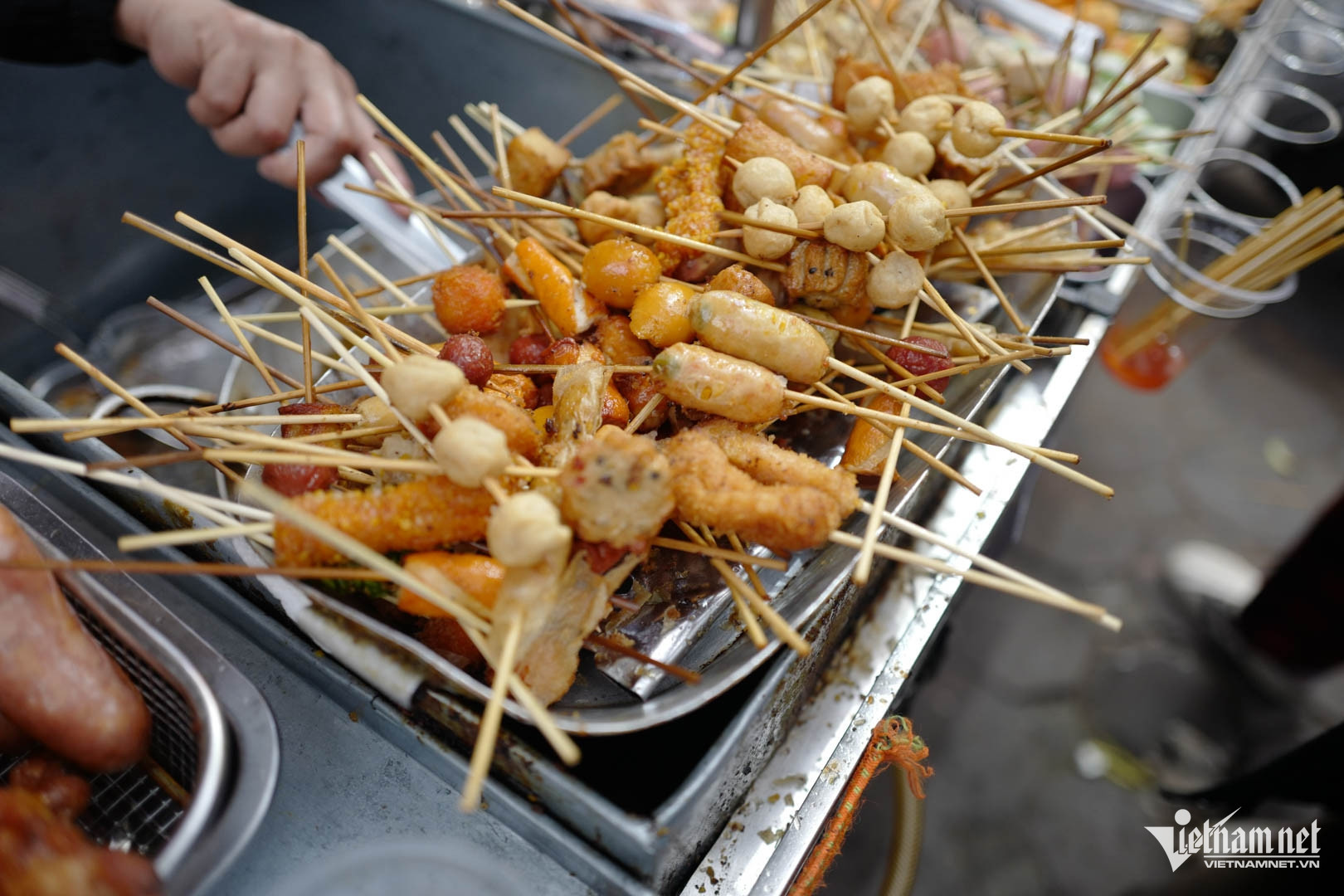In recent years, "dirty skewers" have become a popular and cheap street food in Hanoi, attracting countless customers, especially students. Despite health warnings, these skewers remain a favorite among locals and tourists alike.
The rise of ‘dirty skewers’
Every afternoon, Nui Truc Street (Ba Dinh District) is packed with food stalls and street vendors selling skewers, commonly called "dirty skewers" by students and young people.
The street is known as the hub for "high-class dirty skewers" due to its bustling food scene and eye-catching displays.
The skewers, ranging from 2,000 to 10,000 VND (around $0.08 to $0.42 USD) each, include items like fish balls, beef balls, chicken balls, cheese sticks, and sausages.
Grilled meat skewers and sausages cost around 13,000 to 15,000 VND (about $0.55 to $0.63 USD). Despite being labeled as fish, beef, or chicken, most of these skewers are actually made from processed meat.
The skewers are displayed outdoors on metal trays, exposed to dust and pollution, and often not thawed completely before being deep-fried. There is no plastic covering or hygiene protection, and the frying oil is dark and reused multiple times.
Why customers can’t resist
"I know it’s not really clean, but it’s cheap and tasty," said T.L., an 8th-grade student who frequents the stalls after school. "Sometimes I eat 20,000-30,000 VND worth of skewers and it fills me up before class."
Many students share the same sentiment, believing that eating occasionally won’t cause harm. Despite the awareness of hygiene concerns, the affordability and convenience keep them coming back.
The health risks
The Vietnam Food Safety Authority (under the Ministry of Health) warns that 70-80% of street food, including snacks sold near schools, is contaminated with E. coli bacteria. These bacteria can cause diarrhea, intestinal diseases, and cholera.
Repeated use of cooking oil at high temperatures can also transform it into harmful fatty acids, potentially leading to bloating, indigestion, and even more severe health issues.
A thriving business despite the dangers
Even after multiple inspections and fines, many vendors continue to operate by renting small shops to make their business look more legitimate. During the evening rush from 5 to 10 p.m., customers crowd the sidewalks, often blocking traffic.
"Sometimes the smell of burnt oil fills the air, making it hard to breathe," said a local resident. Despite complaints, these stalls continue to flourish, especially in student-populated areas such as:
Nguyen Chi Thanh Street (Dong Da District)
Tran Duy Hung and Phan Van Truong Streets (Cau Giay District)
Nguyen Quy Duc and Trieu Khuc Streets (Thanh Xuan District)
Nui Truc Street (Ba Dinh District)
Green House Market (Cau Giay District)
The Chua Boc and Xuan Thuy Streets also see a daily influx of students queuing for skewers after school.
Given the growing popularity of these skewers, authorities are urging the public to be more cautious when consuming street food. Choosing well-established eateries with better hygiene practices is highly recommended.
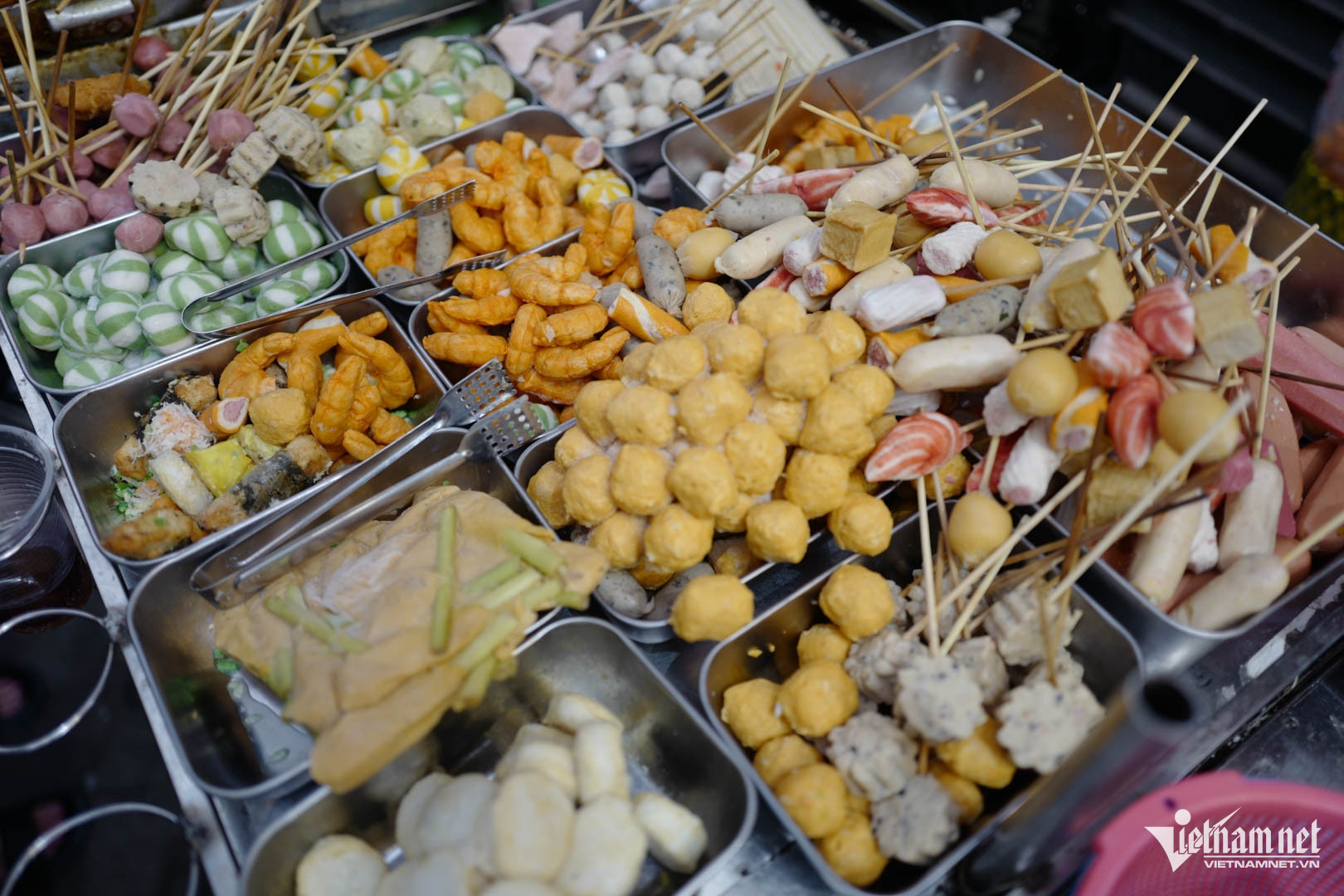
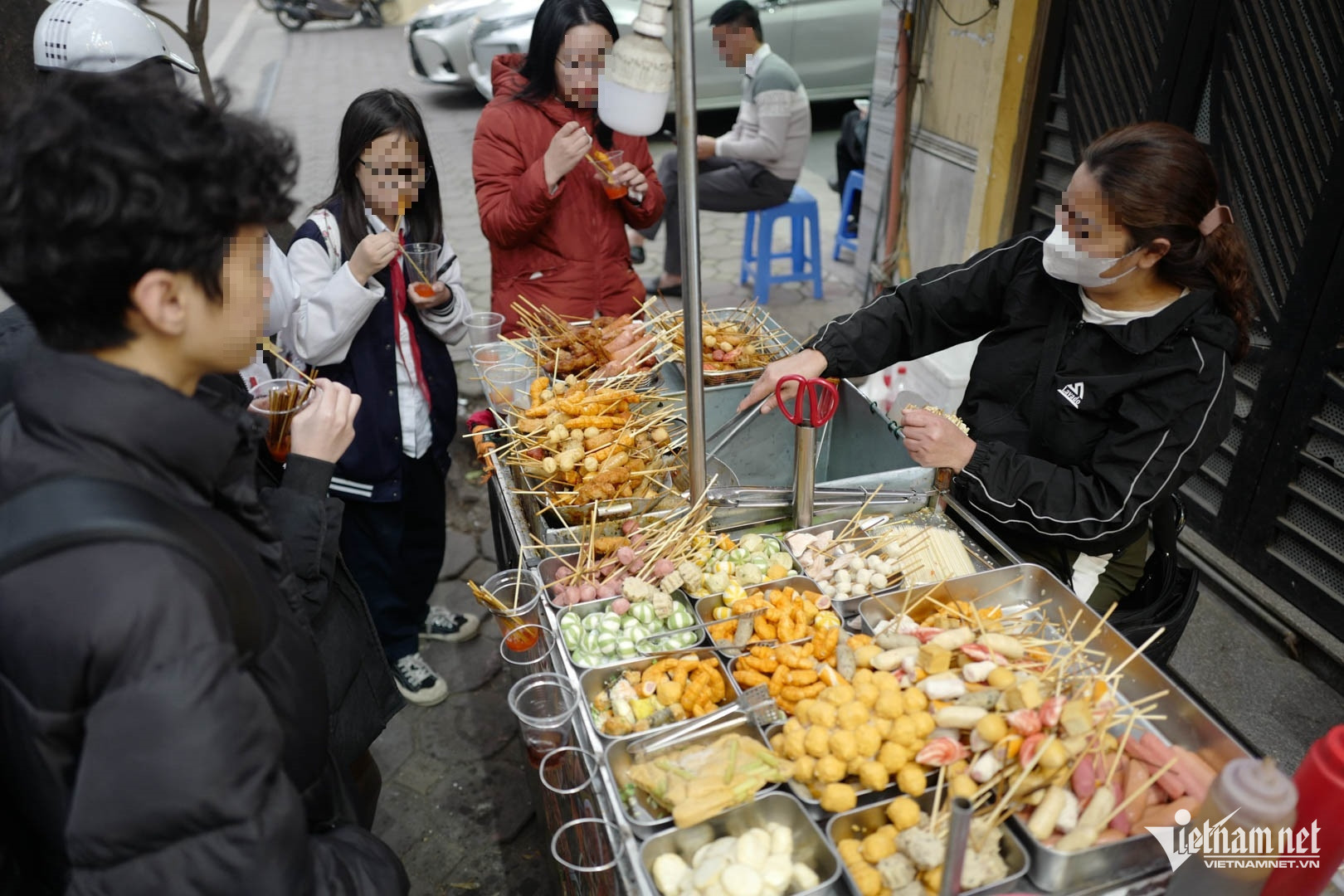
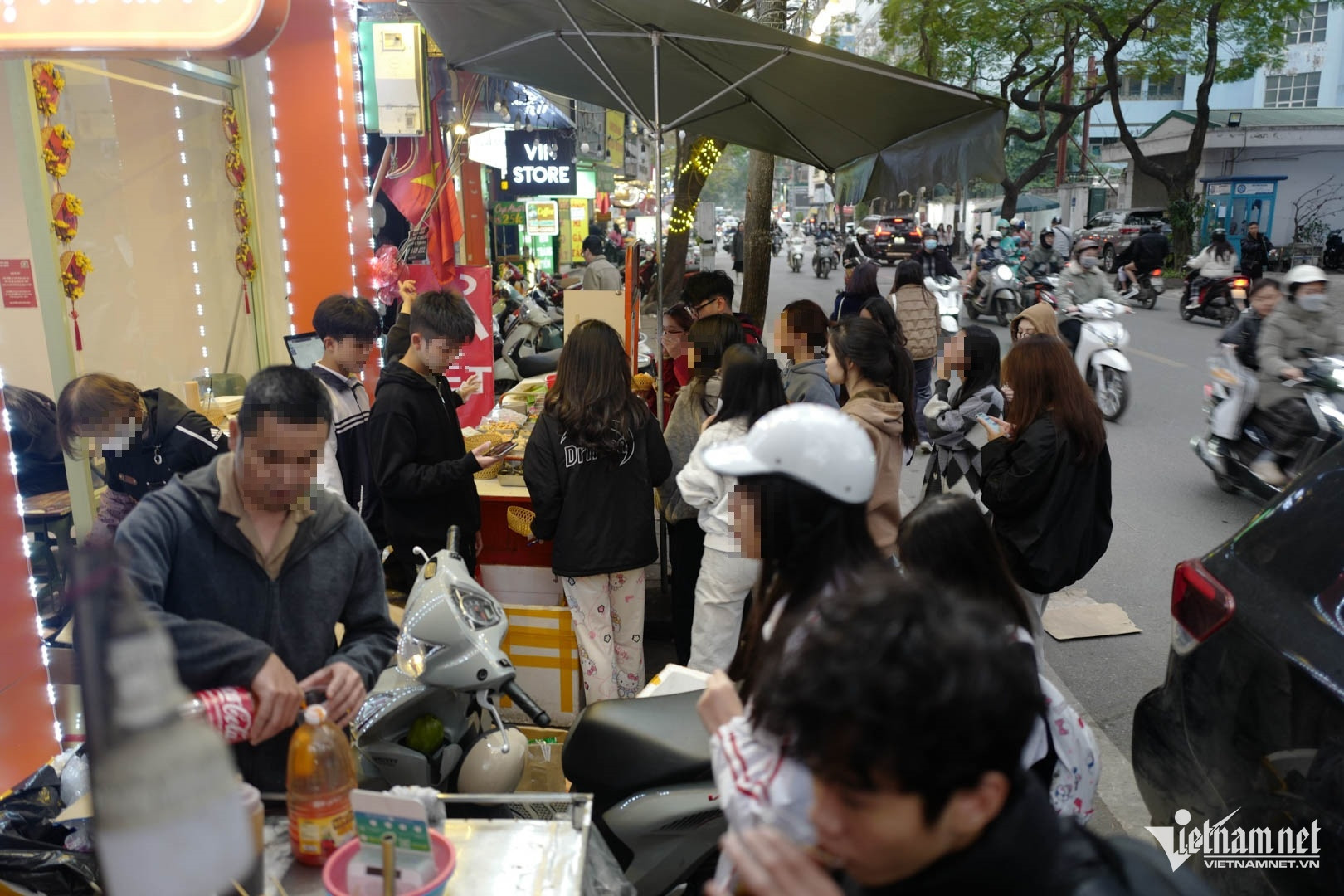
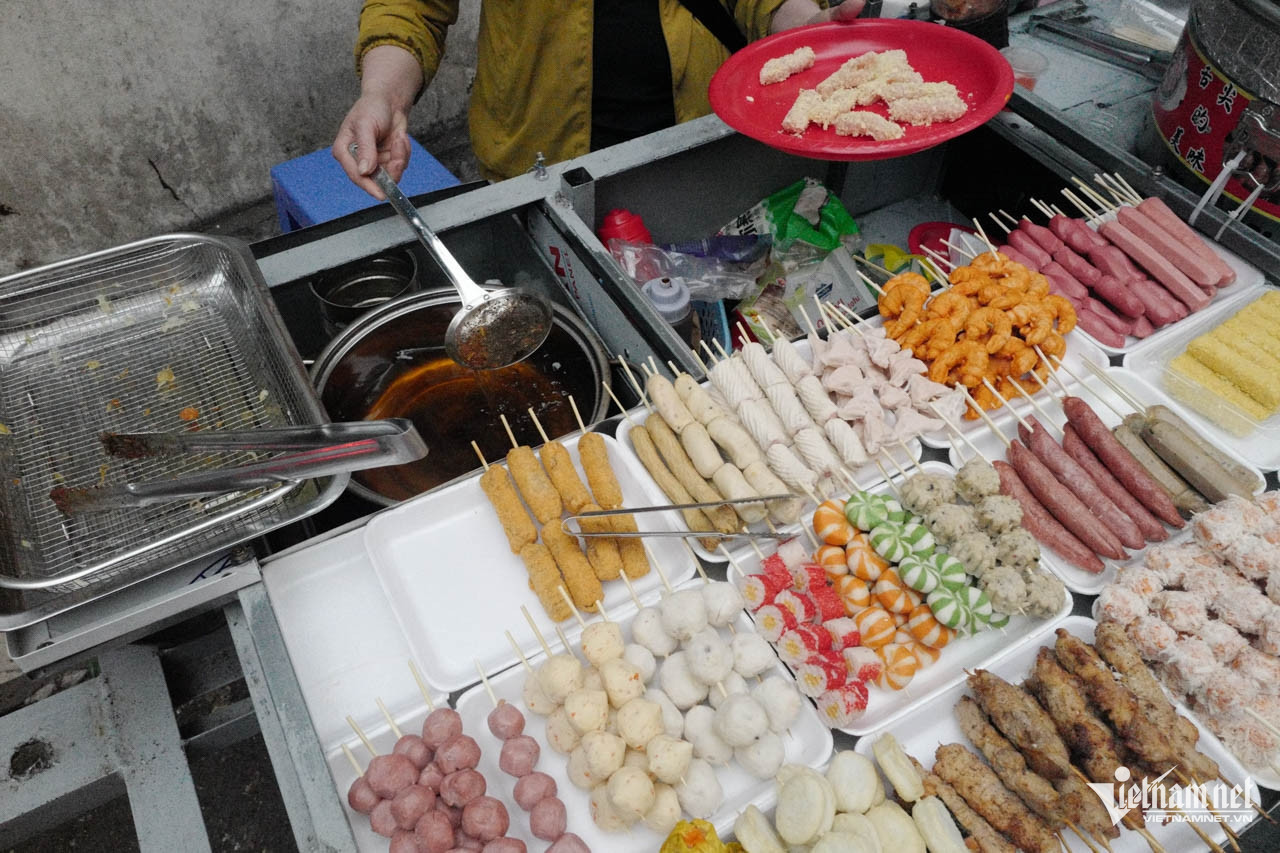
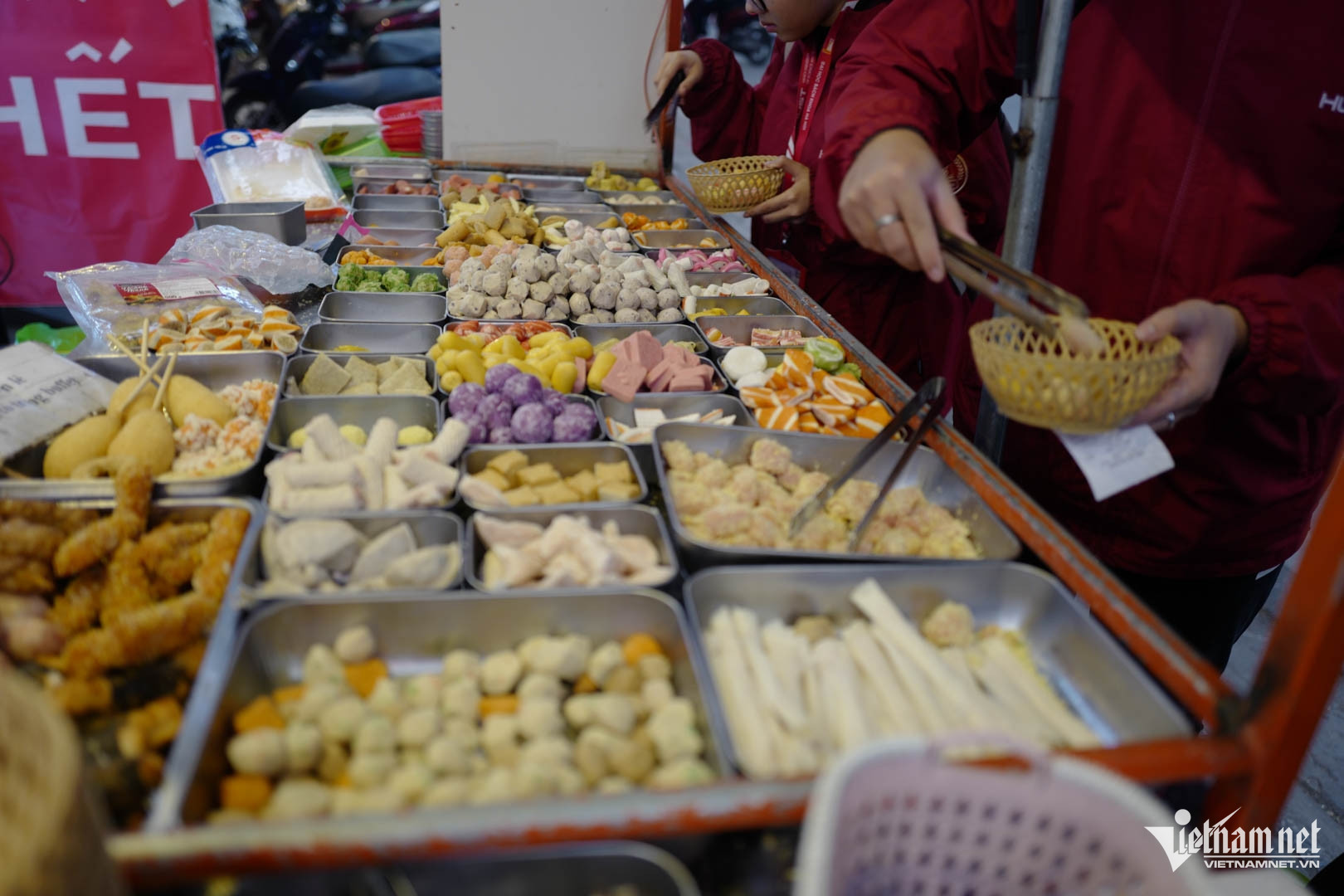
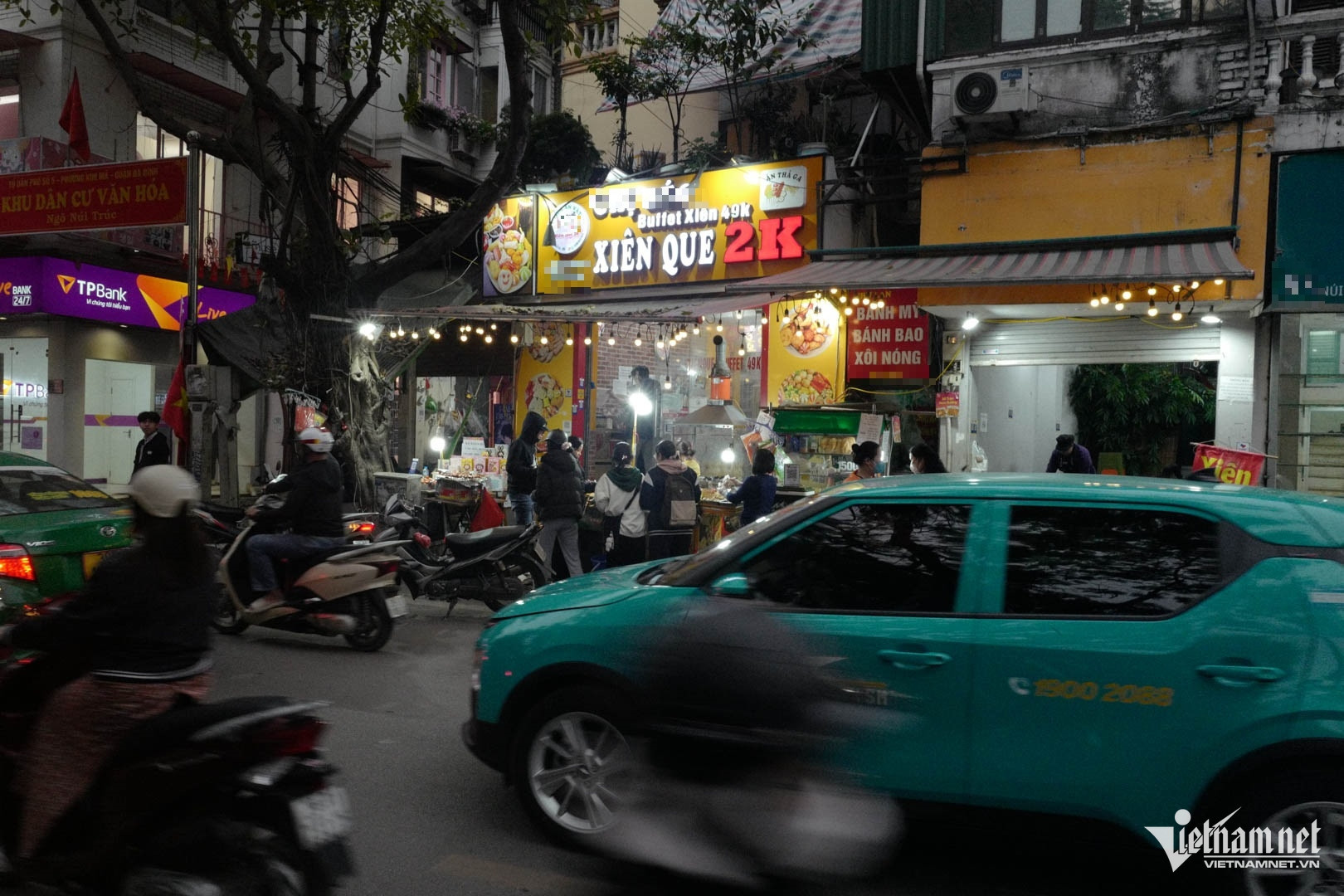 |
 |
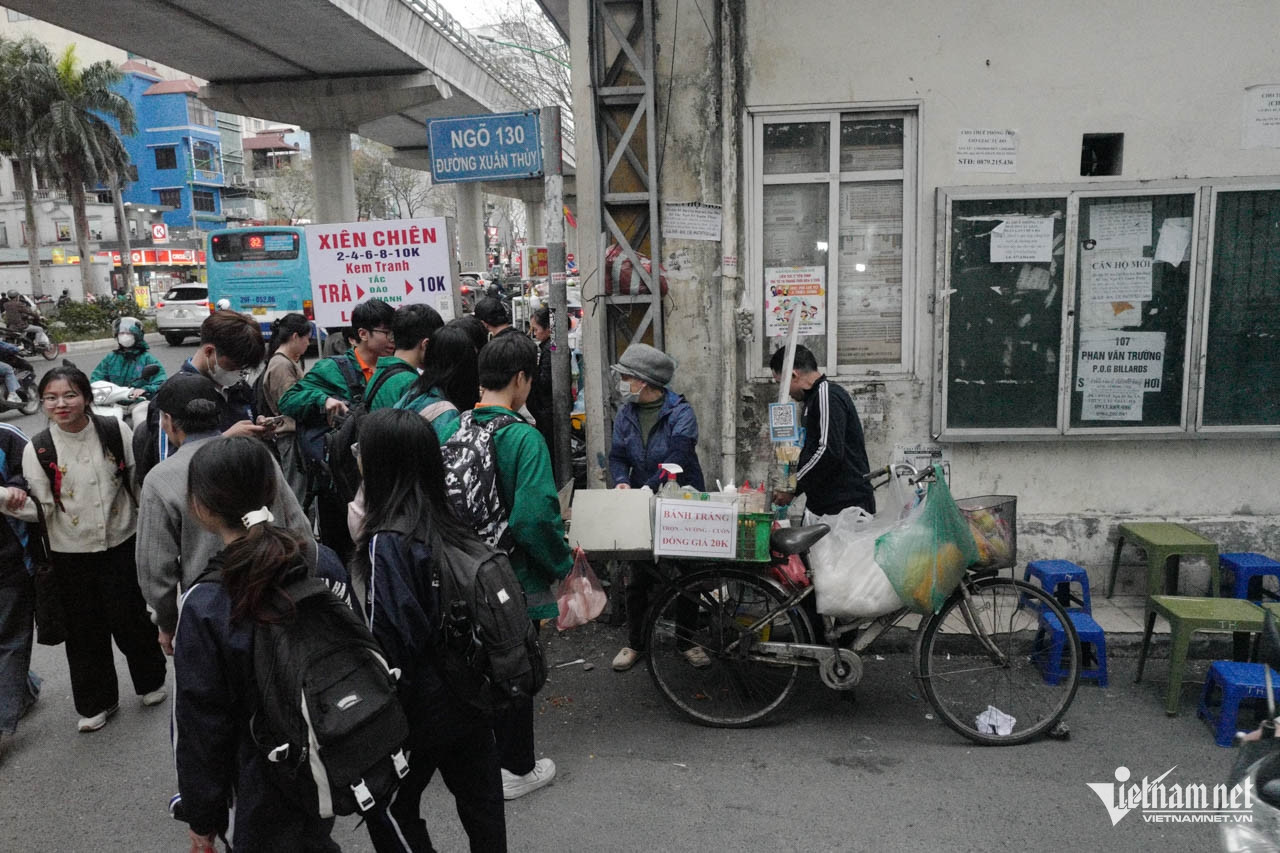
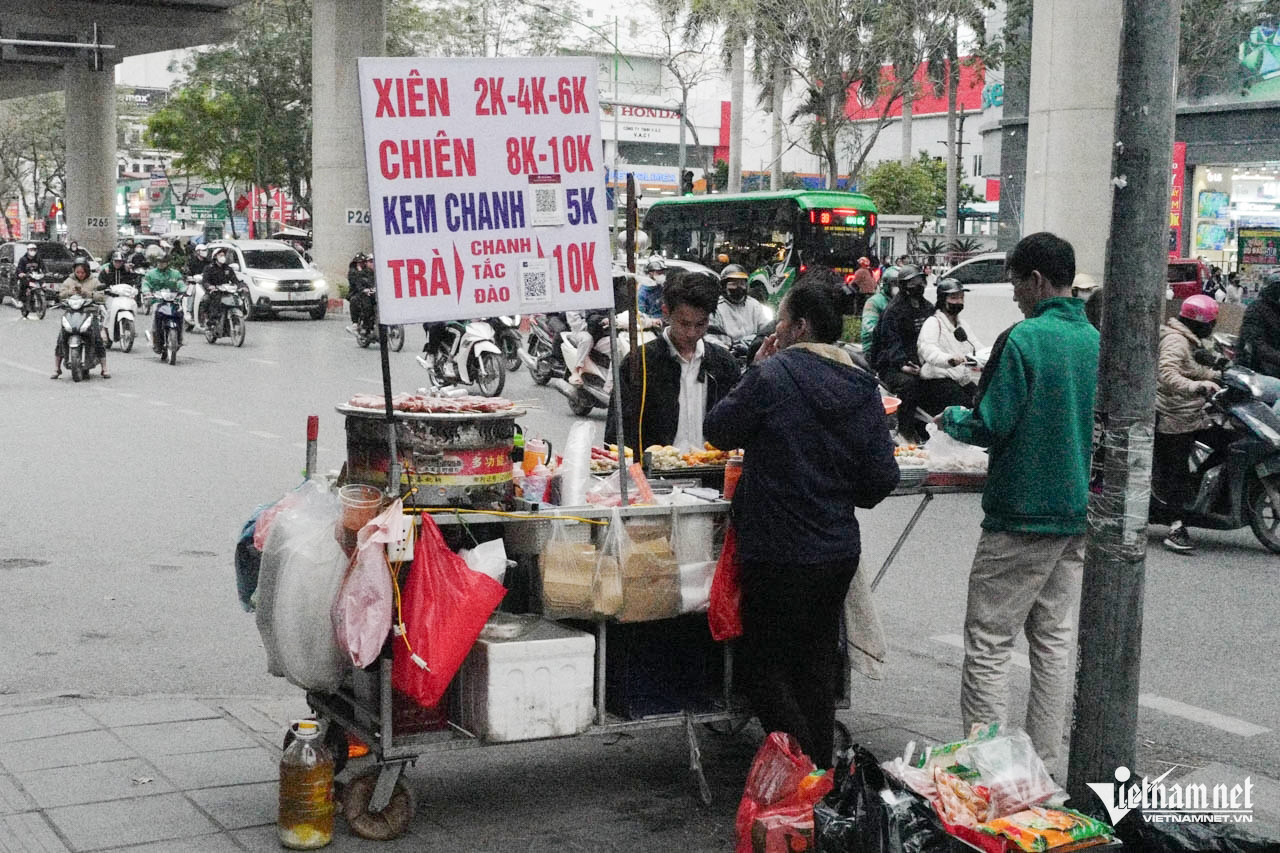
 |
 |
